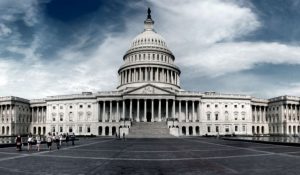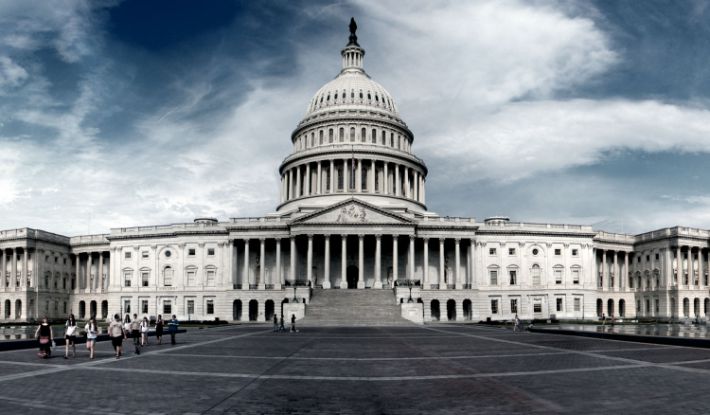This week in political economy.

- In Project Syndicate, Joseph Stiglitz writes about the GOP’s recently-passed tax package, which he dubs “The US Donor Relief Act of 2017.” Also this week, Politico quotes K Street lobbyists and Congressional staffers who see the tax bill as a “giant present to the tax lobbying community.” Shortly before the year ended, The Center for Public Integrity published an index highlighting key figures related to money in politics in 2017.
- Christopher Ingraham of The Washington Post reviews a much-talked-about paper that compares the return on stocks, bonds, and housing in 16 advanced economies over the past century and a half. What the paper shows, he argues, is that French economist Thomas Piketty underestimated the historical rate of return on wealth, and therefore inequality could increase at a pace much faster than Piketty and others fear.
- European antitrust regulators are zeroing in on the accumulation of big data by digital platforms, reports the Wall Street Journal. This, notes the paper, starkly diverges from the hands-off approach of American regulations. In The American Prospect, journalist David Dayen explores different ways to rein in big tech firms and their “predatory capitalism.”
- In Democracy Journal, Phillip Longman explains why “universal health care needs antitrust.” In the The New York Times, Austin Frakt and Aaron E. Carroll attempt to explain why the US spends so much more than other nations on health care. And in case you missed it, Natasha Singer on how Big Tech is going after Americans’ health care.
- With the sale of most of 21st Century Fox to Disney looming, The New York Times on Rupert Murdoch’s “fractured” empire.
- Techdirt reports on the FCC’s plans to weaken the standard definition of broadband in order to protect the industry’s current practices, shirking its mandate to make sure broadband is deployed to all Americans “in a reasonable and timely fashion.”
- Brazil’s Petrobras has agreed to pay $2.95 billion to settle a shareholder lawsuit related to the corruption scandal known as Operation Carwash. Meanwhile, Peruvian president Pedro Pablo Kuczynski has survived a Congressional move to impeach him on grounds of his own involvement with Odebrecht, apparently at the price of granting a pardon to the country’s imprisoned former president Alberto Fujimori. Fujimori’s daughter Keiko, who lost to Kuczynski in the 2016 election, helped lead the impeachment motion.
- The United States Court of Appeals for the Ninth Circuit in San Francisco ordered the Environmental Protection Agency to revise its 17-year-old standard for dangerous levels of lead in paint and dust, reports The New York Times. The EPA reportedly sought a delay of six years to study the decision, on top of a six-year delay under President Obama, but the court refused, giving it 90 days. Also in EPA news: the agency has tasked a friend of Administrator Scott Pruitt, a banker who was banned from the banking industry for life, with overseeing its Superfund program, according to The Intercept.
- “What if sociologists had as much influence as economists?” ponders Neil Irwin.
Chatter from the Ivory Tower
- The annual Allied Social Science Association (ASSA) meeting, the world’s largest gathering of economists, is taking place this weekend in Philadelphia. On the first day, a paper session on gender issues in the economics profession was held in front of a packed room. One paper that inspired much interest was “Publishing While Female” by Erin Hengel, finds that female-authored papers are better written than equivalent papers by men, particularly when it comes to published articles. The paper also finds that women’s writing improves over their careers, while men’s writing deteriorates, and that papers written by women spend six months longer in peer review.
- The deadline to submit papers for the conference on Corporate Political Engagement in Europe and the US (to be held June 9-10, 2018 at Oxford’s Blavatnik School of Government) is January 31. The conference is being organized by Luigi Zingales along with Rebecca Henderson and David Moss of HBS and Karthik Ramanna of Oxford.
Stigler Center Goings-on
- Have you subscribed to the Stigler Center’s new podcast, Capitalisn’t? If not, do it here.
- Sign up for our upcoming January 18 event: a conversation between Stigler Center Director Luigi Zingales and Duff McDonald, author of the recent The Golden Passport, on the MBA elite and the limits of capitalism. Details here.
Disclaimer: The ProMarket blog is dedicated to discussing how competition tends to be subverted by special interests. The posts represent the opinions of their writers, not those of the University of Chicago, the Booth School of Business, or its faculty. For more information, please visit ProMarket Blog Policy.






